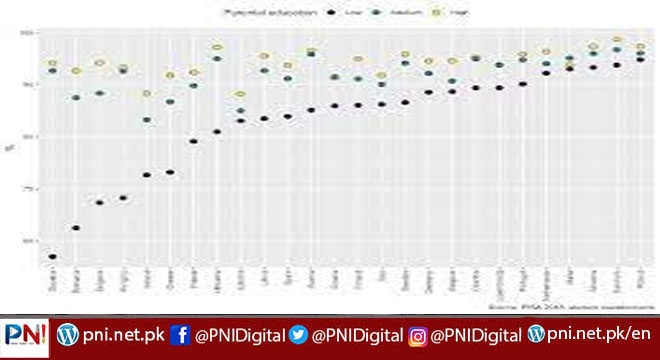Paris, Aug 26 (AFP/APP):The best way to keep Covid cases out of businesses and schools while maintaining some in-person presence is to create two rotating groups, a French study showed Thursday.
Several research institutions including the CNRS and the University of Paris mapped real-world contact networks using data from a high school, a primary school and a business in France.
They then used the networks to simulate the spread of coronavirus from a single case, testing what method of partial teleworking would most efficiently mitigate an outbreak.
They looked at scenarios in which an entire population would alternate its presence daily or weekly, as well as scenarios in which populations would be divided into two groups rotating daily or weekly.
For all three settings, two groups rotating weekly work best to slow transmission of an infection, the study published in the journal PLOS Computational Biology concluded.
The second most effective method is to have two groups rotate daily, it found.
Alternating the presence of a whole population of students or workers on a weekly or daily basis, however, was found to be least effective for social cohesion.
Researchers used information on real-world interactions between individuals and simulated the spread of coronavirus using known information about the virus’s behaviour.
They accounted for the fact that Covid can be contagious before symptoms appear and included random “super-spreader” events in their models.
In a baseline scenario — a primary school with normal attendance — there was a 27 percent chance that a positive case will lead to an outbreak, which is defined as one person infecting at least five others.
But that likelihood falls to just 12 percent if the population is divided into groups that rotate weekly. The risk is only slightly higher for groups that rotate daily, 12.3 percent.
The weekly rotation model is also the most efficient at delaying an outbreak and at limiting the overall number of infections.
But these strategies only work if the amount of virus circulating in the local population remains limited.
If the average number of persons infected by a single case is more than 1.7, “then none of these strategies, except for the full-time telecommuting, suffices to prevent the onset of an outbreak”, the study says.
But if the virus is spreading at a rate of 1.4 new cases for each infected person, “all four of these strategies are satisfactory and manage to curb the epidemic”, the study shows.
An in-person return to school is planned for all students in France next week.
A system of weekly rotating groups applied to some middle- and high-schools across the country could return if cases start to rise again, officials have said.
Follow the PNI Facebook page for the latest news and updates.









